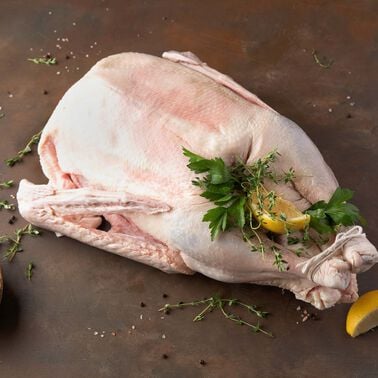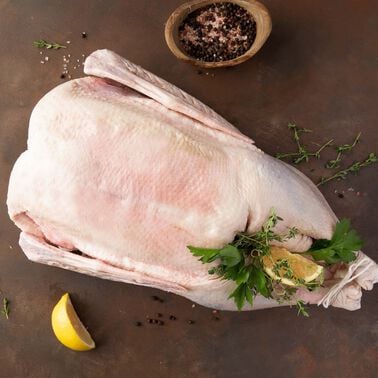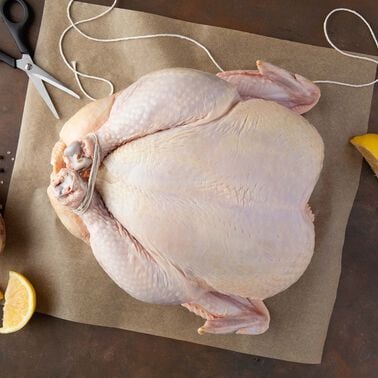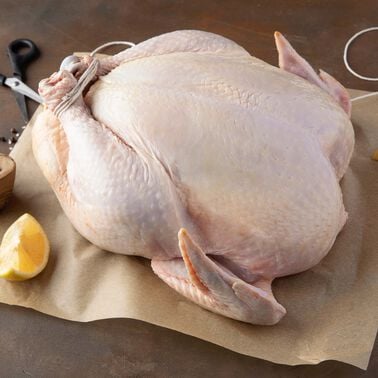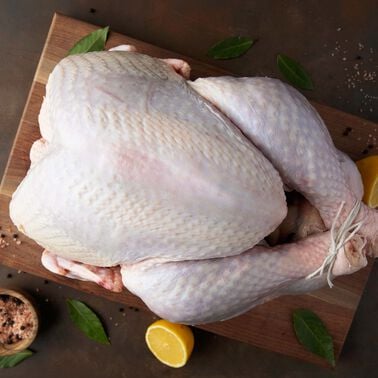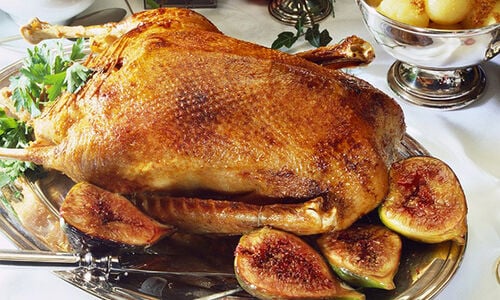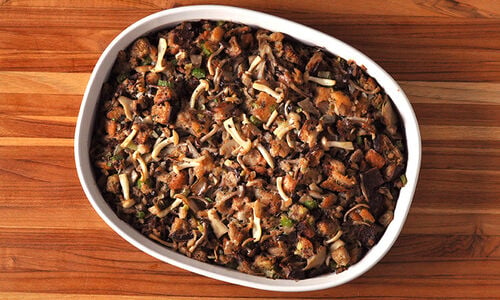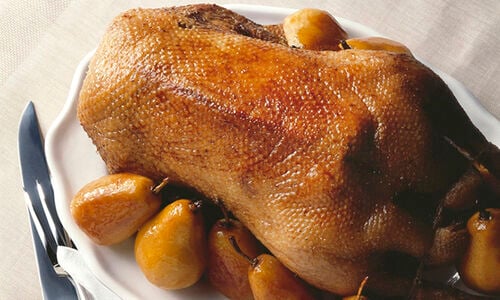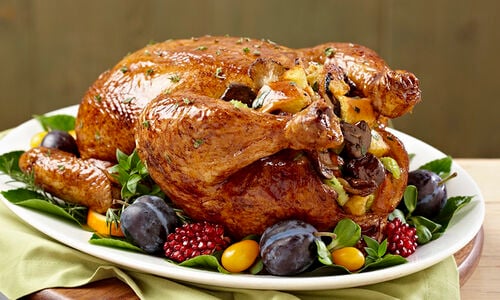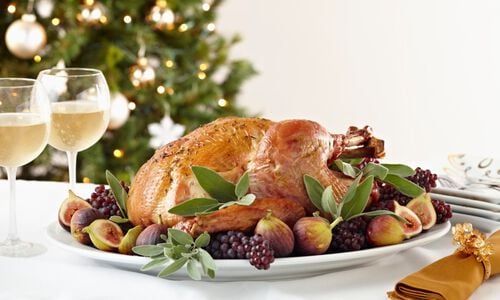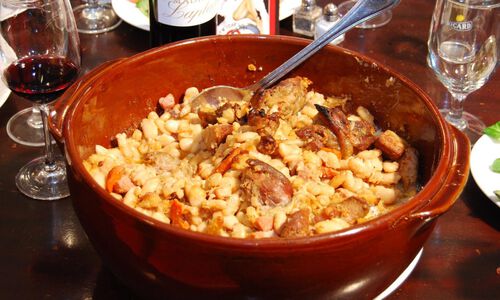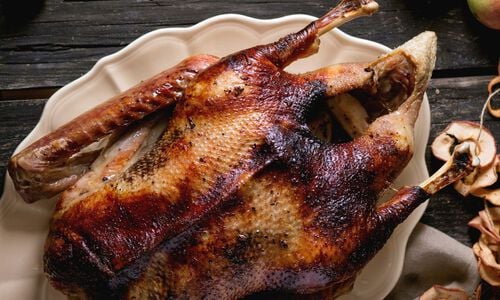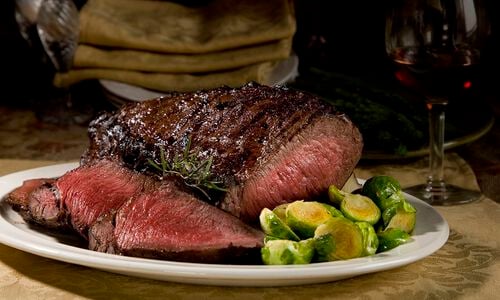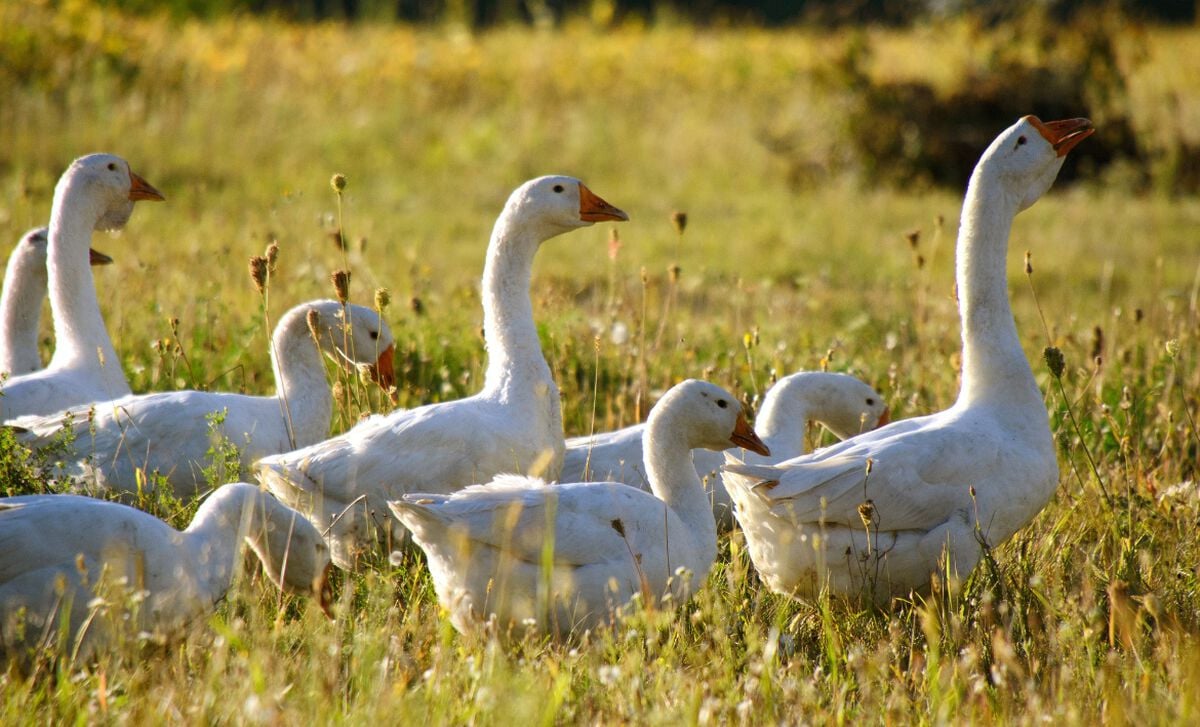
Breeds of Geese
The bird raised for the table in America is the white Embden goose, originally from Germany. It is pure white with an orange bill and orange legs and feet – the perfect picture of a goose. The average dressed weight of a mature goose is 10 to 12 pounds. Geese lay their eggs in the spring. Therefore, by Christmas a young goose is at its optimum weight. And that’s when most people think of having a goose.
In France, there are Toulouse geese and a subset, the Masseube, a gray goose with a big thoracic capacity where the liver expands for foie gras. Masseube geese can be very heavy. But once the liver is taken, they are quite fatty, and good to eat only when made into confit. Domesticated Chinese geese are smaller, brown-and-white birds. Then there are the wild geese, which are extremely lean and generally smaller than their domesticated cousins.
Buying a Goose
When buying, look for a young bird, one that is about 6 to 8 months, and between 8 and 12 pounds. In estimating serving size, you should allow 1 ½ to 2 pounds of goose (raw weight) per person. Fresh geese are not available during February and March, because the older birds are stringy and tough. If you have a mature bird, more than 12 pounds, you should braise, stew, or confit it in pieces, as you would a duck.
Cooking a Goose
To prepare a goose cut off the excess fat from the neck and from the inside cavities. We recommend rendering this like duck fat, making cracklings, and using to cook potatoes, croutons, or omelets. Prick the skin of the back, breast and legs well to let to fat escape as the bird cooks. There will be a lot of fat –up to a quart—so it needs to be removed at least every 30 minutes during cooking. A bulb baster or large spoon will work. Take care; that fat will be very hot!
As with most poultry, the challenge with geese is that if they are cooked whole, the breast is done first and can dry out while the legs are finishing. Either remove the breast and keep it warm, or tent it with aluminum foil. Either way, continue to baste the legs often to keep them moist.
The goose is cooked when the meat measures 165 degrees F on an instant-read thermometer and the breast juices run pale pink (not rose-colored, like a duck) when pricked. As a rule of thumb, calculate between 13 and 15 minutes per pound unstuffed, and 18 to 22 minutes per pound stuffed. When the goose is done, remove it from the oven and let it rest for at least 20 to 25 minutes before carving.
To reheat a goose, cover the bird with aluminum foil and put it back in a moderate oven (350 degrees F) until heated through. Alternately, reheat in a sauce to keep moist.
Fun Facts About Geese
- Goose refers to a male or female. A gander is a male; a gosling is a young goose under 4 months of age.
- Geese are pretty clever, and notoriously territorial. If someone unknown tries to enter their domain, they are likely to attack. This characteristic has been appreciated through the ages; Romans kept geese at their villas as pets to protect their children and properties, and NASA has a flock to guard its launch pads.
- Geese are a rich source of legend and folktales. Egyptian mythology tells that a goose laid the primal egg from which the sun god, Ra, sprang. Brahma, the Hindu personification of divine reality and spiritual purity, rides a great gander. Until the Romans conquered the Gauls, who taught them how to feed and cook their geese, the Romans considered the birds sacred.
- Queen Elizabeth I was a big fan. When she was told about the destruction of the Spanish Armada, it was September 29, the Feast of Saint Michael, or Michaelmas, and she was dining on roast goose with sage and onion stuffing. She decreed that thereafter goose was to be served on this day in celebration.
